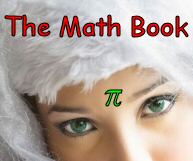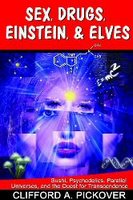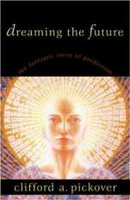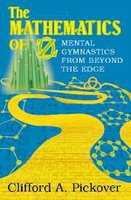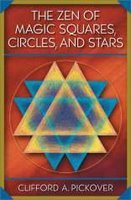Tuesday, February 07, 2006
Nine Angelic Ranks
Angels are mentioned in the Bible over 270 times. Through history, humans have wondered how these heavenly beings are supposed to be organized. Around 500 A.D., the theologian pseudo-Dionysius developed a hierarchy of nine angelic ranks ordered by their perceived closeness to God and thus to omniscience. The names are all in the Bible:
First comes God. Next come:
First comes God. Next come:
1. SeraphimWho in the heck is this pseudo-Dionysius fellow? Scholars believe he was a Syrian monk. Known only by his pseudonym, he wrote numerous Greek treatises that blended Christian theology and mysticism. Pseudo-Dionysius believed that God was essentially unknowable.
2. Cherubim
3. Thrones
4. Dominions
5. Virtues
6. Powers
7. Principalities
8. Archangels
9. Angels
Comments:
<< Home
Powers? Like Austin Powers?
Geez, a hierarchy of angels. Some people really were bored at the time ...
Geez, a hierarchy of angels. Some people really were bored at the time ...
http://en.wikipedia.org/wiki/
Pseudo-Dionysius_the_Areopagite
Quote...
Pseudo-Dionysius the Areopagite, also known as pseudo-Denys, is the name scholars have given to an anonymous theologian and philosopher of the 5th century, who wrote a collection of books, the Corpus Areopagiticum, falsely ascribed to the Dionysius mentioned in Acts 17:34. The author was historically believed to be the Areopagite because he claimed acquaintance with biblical characters. Georgian academician Shalva Nutsubidze and Belgian professor Ernest Honigmann were authors of a theory identifying pseudo-Dionysius the Areopagite with Peter the Iberian. The author's works currently available include the Divine Names, Celestial Hierarchy, Mystical Theology, Ecclesiastical Hierarchy, and various epistles. He refers in his writings to some other works of his that are no longer extant such as Theological Outlines.
Pseudo-Dionysius_the_Areopagite
Quote...
Pseudo-Dionysius the Areopagite, also known as pseudo-Denys, is the name scholars have given to an anonymous theologian and philosopher of the 5th century, who wrote a collection of books, the Corpus Areopagiticum, falsely ascribed to the Dionysius mentioned in Acts 17:34. The author was historically believed to be the Areopagite because he claimed acquaintance with biblical characters. Georgian academician Shalva Nutsubidze and Belgian professor Ernest Honigmann were authors of a theory identifying pseudo-Dionysius the Areopagite with Peter the Iberian. The author's works currently available include the Divine Names, Celestial Hierarchy, Mystical Theology, Ecclesiastical Hierarchy, and various epistles. He refers in his writings to some other works of his that are no longer extant such as Theological Outlines.
The Catholic Encyclopedia: Angels
The Hierarchia coelestis of pseudo-Dionysius exercised an important influence on the artistic conception of angels from the sixth century. Prior to that time, it is true, a distinction was made between different categories of the angelic host, but now the relations of angels to God were represented in the East after the manner of the various grades of court functionaries rendering their homage to the Emperor.
The Hierarchia coelestis of pseudo-Dionysius exercised an important influence on the artistic conception of angels from the sixth century. Prior to that time, it is true, a distinction was made between different categories of the angelic host, but now the relations of angels to God were represented in the East after the manner of the various grades of court functionaries rendering their homage to the Emperor.
Pseudo Dionysius was a key figure in the transmission of Neoplatonism to the church, and is both an important and fascinating figure in the history of ideas. His works were essentially Proclus' metaphysics with a veneer of Christianity. Since the works were taken to be the works of Dionysius the Areopagite, who was present at the crucifixion, they were held in high esteem by many theologians and mystics alike. For those who were seeking the path to enlightenment, he was a fountain of inspiration. For theologians, his systematic and very consistent approach to theology was widely adopted.
You can see his influence clearly in the works of Eriugena (who produced the first good translation of Dionysius into Latin), along with many later heavy hitters such as Bonaventura, Albertus Magnus, Aquinas, Meister Eckhart, Nicholas of Cusa, et al. In the Renaissance, Ficino and others held him in the highest esteem as well, especially since he provided a link between Christianity and Platonism, and he seemed to help prove their views of Platonism as the Universal Philosophy. The beautiful mystical classic, "The Cloud of Unknowing," is profoundly influenced as well.
His philosophy helped to develop the mystical tradition in Medieval philosophy whose ultimate goal was an ecstatic spiritual union with the divine. While God was beyond all conception, even beyond being itself, as a neoplatonist, this didn't mean that he was at all anti-rational. On the contrary, the neoplatonic path *required* the perfection of the intellect, and this was reflected clearly in Ps. Dion. The Platonists reconciled mysticism and reason, the two not being contradictory or exclusive, but in fact were ultimately intertwined and interdependent in their systems. That was always a very refreshing view to me, in light of the frequent trend of viewing the two as incompatible. The ability of neoplatonism to harmonize apparent opposites and systematically bring them together in a consistent whole was attractive to Hegel, who read the neoplatonists and specially Proclus widely, and cited Proclus fairly frequently in his works.
While the works Ps. Dion. are a bit difficult to approach for someone who isn't familiar with Greek philosophy, they are still rewarding to read once you get into them. I think the Mystical Theology is fairly approachable, there is an online version here:
http://www.esoteric.msu.edu/VolumeII/MysticalTheology.html
The letters of Ps. Dion., are more compact, but actually illustrate his complete system of philosophy in a very ingenious way. As they are compact and subtle, they repay rereading a number of times. A version can be found here:
http://latter-rain.com/ltrain/diony.htm
If one reads Proclus, one can see the way that Dionysius really just copied his system from there wholesale. For an into. to Proclus' system, the best book to start with is the Elements of Theology, a system of metaphysics developed as a series of proofs laid out in the Euclidian form. There is a translation online here:
http://www.esotericarchives.com/proclus/metaelem.htm
You can see his influence clearly in the works of Eriugena (who produced the first good translation of Dionysius into Latin), along with many later heavy hitters such as Bonaventura, Albertus Magnus, Aquinas, Meister Eckhart, Nicholas of Cusa, et al. In the Renaissance, Ficino and others held him in the highest esteem as well, especially since he provided a link between Christianity and Platonism, and he seemed to help prove their views of Platonism as the Universal Philosophy. The beautiful mystical classic, "The Cloud of Unknowing," is profoundly influenced as well.
His philosophy helped to develop the mystical tradition in Medieval philosophy whose ultimate goal was an ecstatic spiritual union with the divine. While God was beyond all conception, even beyond being itself, as a neoplatonist, this didn't mean that he was at all anti-rational. On the contrary, the neoplatonic path *required* the perfection of the intellect, and this was reflected clearly in Ps. Dion. The Platonists reconciled mysticism and reason, the two not being contradictory or exclusive, but in fact were ultimately intertwined and interdependent in their systems. That was always a very refreshing view to me, in light of the frequent trend of viewing the two as incompatible. The ability of neoplatonism to harmonize apparent opposites and systematically bring them together in a consistent whole was attractive to Hegel, who read the neoplatonists and specially Proclus widely, and cited Proclus fairly frequently in his works.
While the works Ps. Dion. are a bit difficult to approach for someone who isn't familiar with Greek philosophy, they are still rewarding to read once you get into them. I think the Mystical Theology is fairly approachable, there is an online version here:
http://www.esoteric.msu.edu/VolumeII/MysticalTheology.html
The letters of Ps. Dion., are more compact, but actually illustrate his complete system of philosophy in a very ingenious way. As they are compact and subtle, they repay rereading a number of times. A version can be found here:
http://latter-rain.com/ltrain/diony.htm
If one reads Proclus, one can see the way that Dionysius really just copied his system from there wholesale. For an into. to Proclus' system, the best book to start with is the Elements of Theology, a system of metaphysics developed as a series of proofs laid out in the Euclidian form. There is a translation online here:
http://www.esotericarchives.com/proclus/metaelem.htm
it's not the case that PD lifted his philosophy wholesale out of proclus, there is some important resonance with liturgy and church fathers as well. see for ex. Rorem's book on liturgical symbols in the PDian synthesis
t3dy.livejournal.com
t3dy.livejournal.com
To the individual or individuals who goes by the screen name of Mr.Silly , that is a quite facinating and systematic exposition you have made regarding the historical role of Pseudo-Dionysus The Aropegite , in regard to influence on Western philosophy and theology !
He is indeed a fascinating thinker ! Jay at mudstones2@aol.com
Post a Comment
He is indeed a fascinating thinker ! Jay at mudstones2@aol.com
<< Home
 Godlorica
Godlorica


